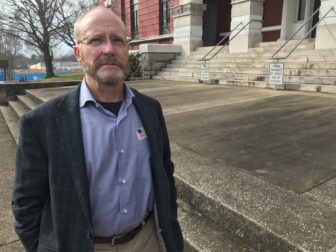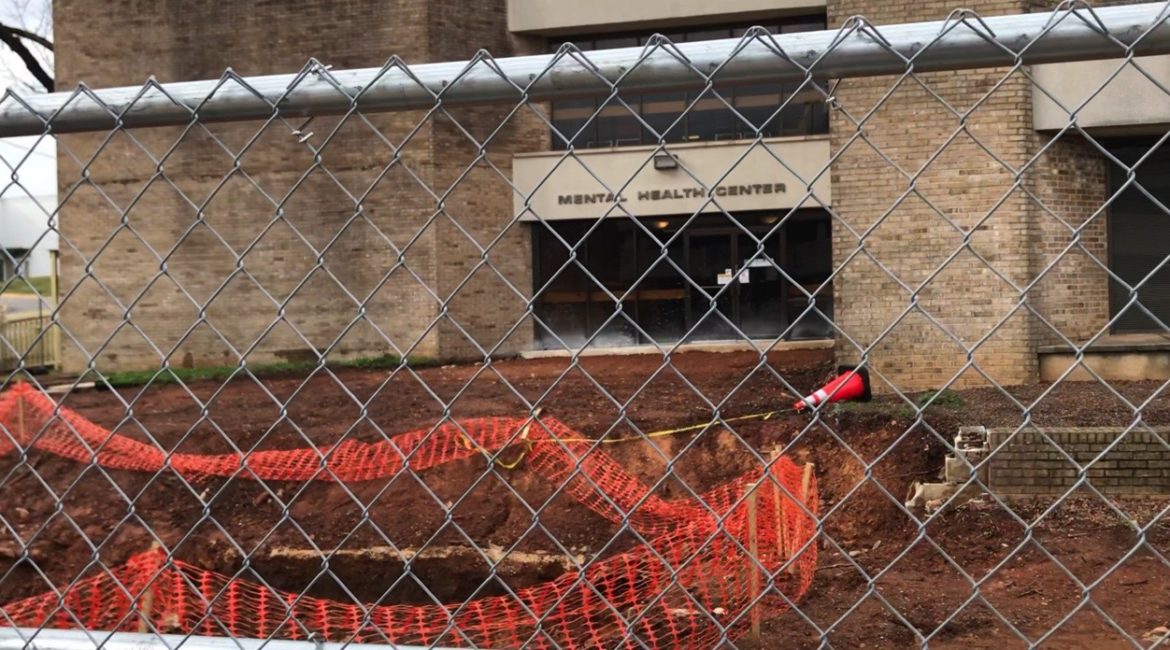When someone with mental illness is in crisis, families often call police for help.
But law enforcement officers have few pathways to help get someone into treatment, according to retired Chief Deputy Jon Garlick of Anniston, Ala. The result is too many Alabamians with mental illness enter the criminal justice system instead of receiving treatment.

Jon Garlick was the mental health officer for Calhoun County, Ala.
Before retirement, Garlick was the mental health officer for Calhoun County and helped establish its mental health court. Now he’s advocating broad mental health care reform.
His answers have been lightly edited and condensed.
Webb-Hehn: Describe what it’s like when law enforcement receives a mental health crisis call.
Garlick: Those can be very dangerous environments for law enforcement.
We're not social workers, and we don't have a broad range of solutions to problems.
Law enforcement arrive on scene and have to draw on their skills to learn how to de-escalate that situation and to assess what's going on. We have to determine if a crime has been committed or not.
And then: Is there an arrest that can be made or not? And that's pretty much what we're there to do.
Sometimes, it's not just a given that the person with mental illness is the one that broke the law here. You may end up arresting the caregiver or both depending on the situation.
Webb-Hehn: What responsibility does law enforcement have to make sure people who’ve posed a threat to themselves or others are not armed?
Garlick: Law enforcement need a court order to [remove firearms from the mentally ill]. We take them and hold them for safekeeping until a family member can come get them. That's fairly successful. Of course, we don't know what the family does. They could get the firearms and give them right back.
[Related: Rural Residents Who Struggle With Mental Illness Are Isolated, Stigmatized, Not Near Help]
[Related: People Stocking Up On Guns Though Safety Classes Unavailable]
[Related: Therapists Urge Seeking Help Immediately After Suicidal Thoughts]
But if they'd been committed in hospital … the individual can't be in possession of [a firearm].
If the family gives them back, and we get called out there and find them with a gun, now they're going to have another charge.
No place to put them
Webb-Hehn: Can you give an example of someone whose family has called the police because of a mental health issue, and that person enters a cycle of jail and release?
Garlick: We have this young lady in Calhoun County. She suffers from a traumatic brain injury incurred when she was a young teenager ... a severe, debilitating situation for her.
As is the case with people with severe mental illness, they generally burn a lot of bridges and the families get exhausted trying to maintain that relationship. And so hers is not an uncommon story. She'd get arrested for assault and domestic violence, and she'd come to jail.
For more information on mental health, go to JJIE Resource Hub | Mental Health and Substance Use Disorders
Webb-Hehn: How is her mental illness criminalized?
Garlick: Typical of people with severe mental illness, they stay in jail longer than others. Nobody wants to bond them out. You're getting a public defender who may have so many other things to deal with, having to cope with this severely mentally ill person is the lowest thing on their list of things to do.
And then the court tries to do the right thing and they're like, “Well, what do we do?” There's no place to put this person [because mental health facilities are underfunded]. So, unfortunately she might be safer in jail than on the street.
In the last 10 years of her life, [this woman in Calhoun County] has spent the equivalent of six years in jail on nothing more than a misdemeanor. And wasn't ever sentenced. She was just in there and languishing.
Unfortunately, because of that experience and the lack of systemic social support, she cannot function outside of a structured environment. So when she's out, just a few months go by, and she'll be back in jail for something.
It's really tragic. We need to have a place for those folks to go where they get cared for.
Webb-Hehn: Multiple mental illness measures are in consideration by the state Legislature currently. What solutions should Alabama examine?
Garlick: If I could wave a magic wand and make everybody work together and had unlimited funds to do it, we need a thousand-bed campus for long-term continuing care.
We need another 2,000 or so beds for the treatment of probate court, civil commitment. We need 72-hour crisis beds in each community to handle what law enforcement will have on the street. You know, if somebody hasn’t taken their medications … they're a danger to themselves, and we need some place to take them where they can get on some medication and stabilize for 72 hours and then be looked at before we bring them home.
We need to be doing really good assessments in schools, pre-K up to third grade, assessing any child that comes on the school counselor's radar for any reason whatsoever. … Take a look at that family and see what else is going on. And then we can provide services to that family. Or if there's a mental health history in that family, we might be witnessing something at a young age that's going to manifest when they're older.
If you or someone you know are in need of mental health assistance, contact the National Alliance for Mental Illness at 1-800-950-NAMI (6264) or info@nami.org.
This story was produced in conjunction with The Anniston Star. It is part of the Juvenile Justice Information Exchange’s project on targeting gun violence. Support is provided by The Kendeda Fund. The JJIE is solely responsible for the content and maintains editorial independence.

Pingback: Rural Residents Who Struggle With Mental Illness Are Isolated, Stigmatized, Not Near Help – Addictioninfousa
Unfortunately in the police state that our country is turning into, there are many people who are incarcerated and put on the sex offender registry who have autism, a mental illness, or the mind of a 10-year-old child. These people often have not physically touched another person but might have exposed themselves, viewed several inappropriate pictures of minors, or (in some states) been arrested for public urination. The original sex offender registry started off years ago with around 30 serious sex offenses. Now the registry includes well over 100 offenses. Florida Action Committee (FAC) is fighting for these individuals by advocating for reform of the registry and the state draconian laws that go with it.